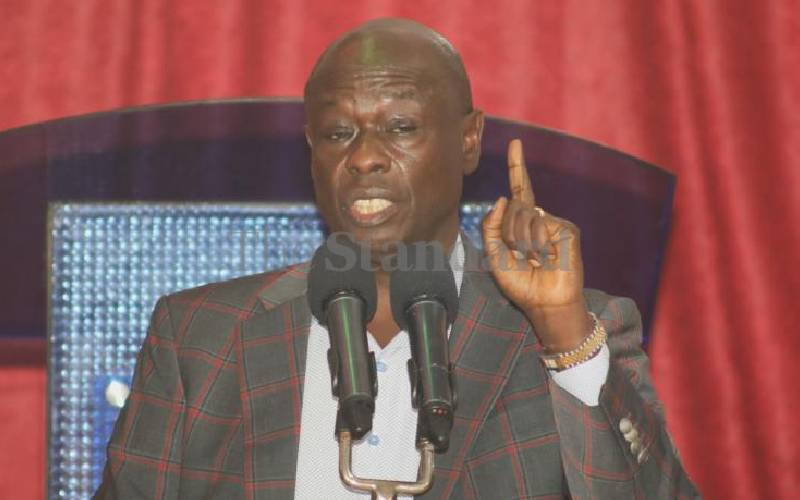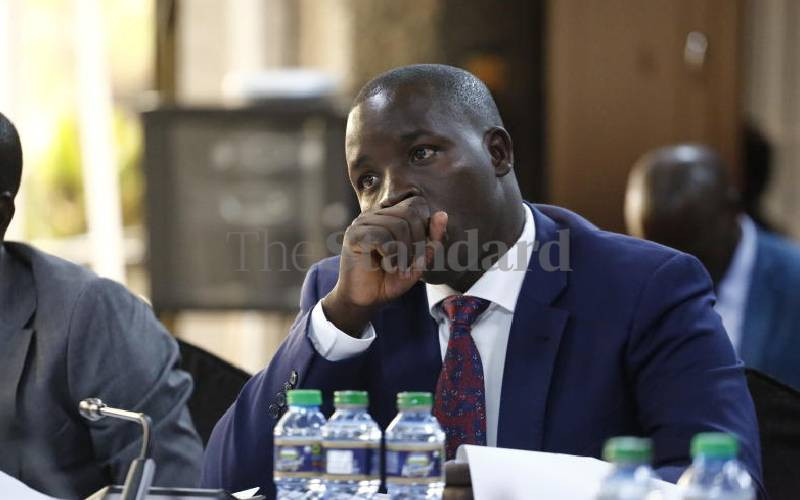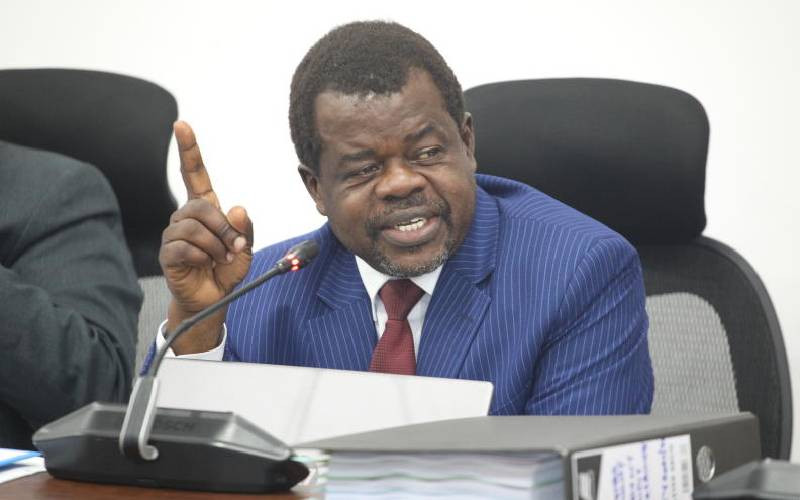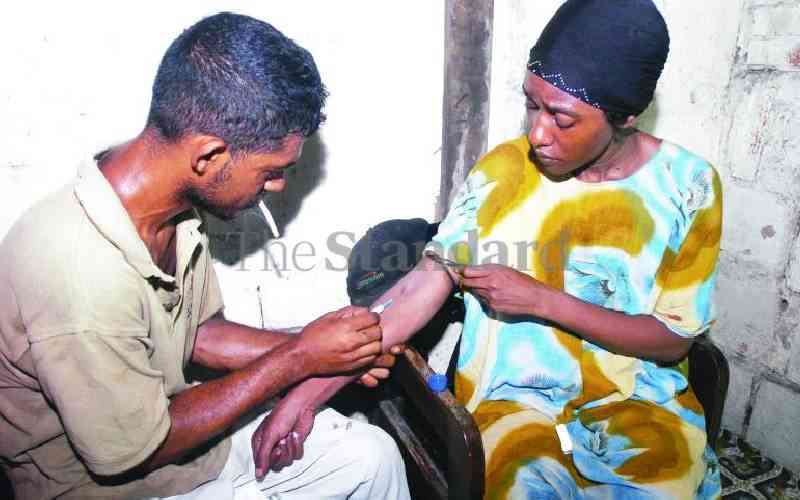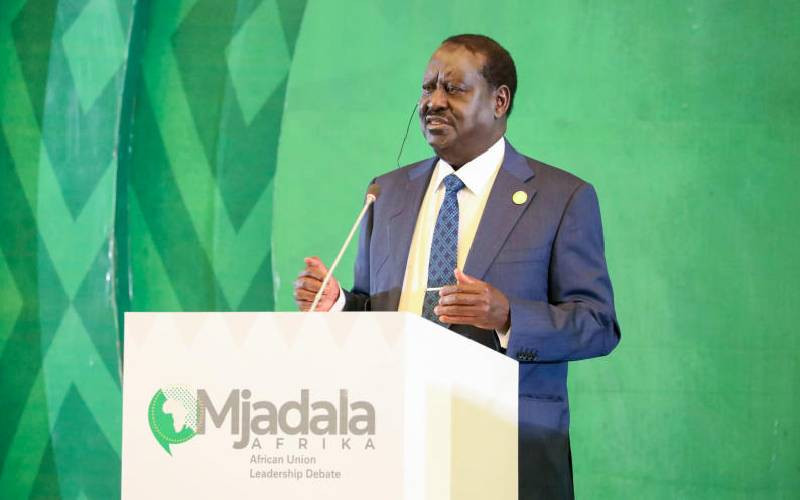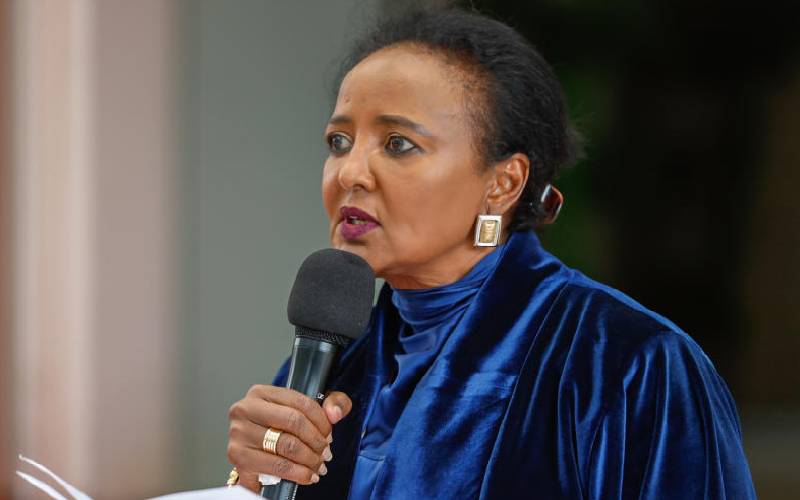
The World Trade Organisation (WTO) is looking for a new Director General, and three women from the Third World are competing. It is the first time that women are the top contenders. They come from Nigeria, Kenya and South Korea.
All the three women have survived tough fights to reach where they are. The three sisters are Nigeria’s Ngozi Okonjo-Iweala who has worked for the World Bank and as Nigeria’s Finance minister, South Korea’s Trade Minister Yoo Myung-hee, and Kenya’s Sports Cabinet Secretary Amina Mohamed. They stopped being novelties, graduated into hard-nosed political players in their particular states and rose to the top of the national pecking order.
Given that trade is at the centre of each country’s dealings with others; trying to sell more yet buy less as a result of other factors. They include diplomatic cunning, bullying capacity, intellectual and reasoning prowess in defence of national interests, simple shylock behaviour and aptitude, and the ability to fend off pressure.
Countries with capacities in most, if not all the above factors, do well or at least minimise the negatives. Ideally, countries reach understandings of what to buy from whom or who to sell to, but the problem is that world trade is not a matter of willing buyer willing seller. It is a matter of international power politics, which means the manipulation of the global political economy.
This makes world trade a theoretical combination of the Adam Smith notions of free trade with the Karl Marx concepts of struggle and dominance. In the process, traded commodities become tools of power play, which at times lead to the creation of artificial scarcities in order to make or increase the strategic value of a commodity. The few countries with the ability to create commodity scarcities end up exploiting the others by dictating terms of trade.
It, therefore, matters who makes or implements trade policies. Strong countries decide who to sell to or buy from when it comes to critical materials. Subsequently, trading deals are rarely entered on equal footing or for altruistic reasons. Thus, security considerations and other aspects of national interest preoccupation end up influencing trading patterns.
This reality explains the current search for a new WTO Director-General (DG) because it is about global power politics. The United States, by threatening to quit and undermining key WTO organs, virtually forced WTO Director-General Roberto Azevedo of Brazil to resign before his time was up.
WTO has no choice but to hurriedly look for a new DG, who will not be offensive to US President Donald Trump. And Trump has big input in the appointment of an acting DG while waiting for a substantive one. In this context, 'merit' is an Einsteinian term that is, at best, the background to 'real' qualification. This makes global political awareness and compatibility with particular interests crucial to qualification.
The person who ends up as the WTO DG must thus be able to balance conflicting geopolitical interests with the theories of free trade. Subsequently, two key considerations for the suitability of any candidate are the perceived inherent benefits and threats. First is whether the candidate is an asset to individual countries and then to the organisation. Second is whether the candidate is likely to be a threat to the interests of the country or the organisation. Since the candidate cannot be divorced from the sponsoring country, the global standing of that country is a serious factor in deciding who to give the job.
Most important, the person and the sponsoring country must convince WTO members that they are not threats to individual country interests. In Amina, Kenya hopes it has presented such a person. Through her, Kenya intends to play high WTO politics within and outside the continent. As Uhuru Kenyatta’s Minister for Foreign Affairs and Trade, she organised the 10th WTO Ministerial Conference in Nairobi. Her 'vision' of 'Reform, Recover, Renew' tallies well with the American belief that WTO needs reforms. Careful not to annoy any side, she offered her three “r’s” antidote to world trading disorder.
To outpace her 'sisters', Dr Amina must display compelling political acumen. Since the job is political rather than technical, while befriending almost everyone, she, and Kenya, cannot appear to threaten the interests of countries of great influence. She loses if she appears to do so.
Prof Munene teaches History at USIU
 The Standard Group Plc is a
multi-media organization with investments in media platforms spanning newspaper
print operations, television, radio broadcasting, digital and online services. The
Standard Group is recognized as a leading multi-media house in Kenya with a key
influence in matters of national and international interest.
The Standard Group Plc is a
multi-media organization with investments in media platforms spanning newspaper
print operations, television, radio broadcasting, digital and online services. The
Standard Group is recognized as a leading multi-media house in Kenya with a key
influence in matters of national and international interest.
 The Standard Group Plc is a
multi-media organization with investments in media platforms spanning newspaper
print operations, television, radio broadcasting, digital and online services. The
Standard Group is recognized as a leading multi-media house in Kenya with a key
influence in matters of national and international interest.
The Standard Group Plc is a
multi-media organization with investments in media platforms spanning newspaper
print operations, television, radio broadcasting, digital and online services. The
Standard Group is recognized as a leading multi-media house in Kenya with a key
influence in matters of national and international interest.


